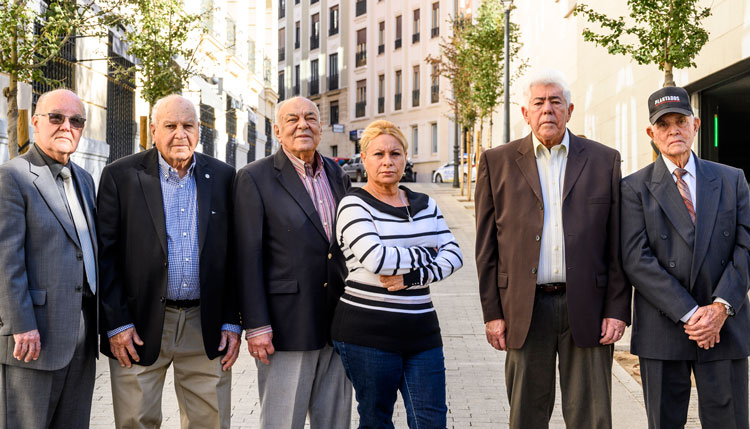Eduardo González
The President of the Government, Pedro Sánchez, will participate today in Paris in the international conference on the future of Libya, in which he will run into Vice President of the United States, Kamala Harris, and Foreign Ministers of Morocco and Algeria. Despite this, no bilateral meeting is foreseen in the margins of the summit.
According to Moncloa sources, Sánchez will ratify during the conference Spain’s commitment to the stabilization of Libya and its support for the holding of presidential and legislative elections on the scheduled date of December 24, under the agreement reached by Libyan political factions in Tunis on November 15, 2020.
Last June, during his visit to Libya, Sánchez announced a contribution of 100,000 euros to UNDP to assist in the holding of the elections, funds that have already begun to be disbursed and that will join another 50,000 euros committed by Spain for demining work. Likewise, our country will contribute between seven and ten troops to the future cease-fire observer mission. The sending of these troops, belonging to the Civil Guard, the National Police and the Armed Forces, is pending the request of the UN Secretary General, António Guterres.
The summit has been jointly convened by France, Germany, Italy and the UN and will be attended by twenty countries, as well as the EU High Representative, Josep Borrell, and the President of the European Council, Charles Michel. The list includes a dozen heads of state and government (Spain, France, Germany, Chad, Cyprus, Egypt, Greece, Italy, Malta, Niger, the Netherlands, Tunisia and the Democratic Republic of Congo). The United States will be represented by Vice-President Kamala Harris and Russia by its Foreign Minister, Sergei Lavrov. Two of Libya’s neighboring countries, Algeria and Morocco, will participate at the level of foreign ministers, while the level of representation not only of a key player such as Turkey, but even of Libya itself, is still unclear.
Kamala Harris, Algeria and Morocco
Despite the presence of Kamala Harris, the aforementioned Moncloa sources specified that the President of the Government has not planned any bilateral meeting in the margins of this meeting. Harris also participated yesterday in Paris in the IV Peace Forum, in which she coincided with King Philip VI and which brought together heads of State and Government, leaders of international organizations and high political and economic personalities to discuss international cooperation in the aftermath of the pandemic.
As was to be expected, participation in this summit brought to light the many tug-of-war issues that preside over current international relations. Such is the case of Turkey’s President Recep Tayyip Erdogan, who has vetoed his participation in protest at the presence of Greece and Cyprus and has not yet announced the level of his representation. It is also the case of Algeria, whose president, Abdelmadjid Tebboune, has decided not to participate as he considers the conditions for this to be “unfavorable”, in reference to recent statements by the president of France, Emmanuel Macron, which the Algerian authorities have described as “insulting”. Algeria will therefore be represented by its Algerian Minister of Foreign Affairs, Ramtane Lamamra.
Morocco will also be represented by its Minister of Foreign Affairs, Nasser Bourita. Therefore, the two Maghreb countries have decided to reduce the range of their political presence in Paris in the midst of a worsening of their bilateral diplomatic relations, a conflict that could affect Spain very directly after the closure of the Maghreb gas pipeline that crossed Morocco and through which more than 20% of the gas supplied by Algeria to our country arrived.
In any case, Sánchez’s coincidence with Bourita comes at a particularly delicate moment in the relations between Morocco and Spain. When it seemed more or less overcome the serious diplomatic crisis that broke out between Madrid and Rabat last spring after the irregular entry into Spain of the leader of the Polisario Front, Brahim Ghali, in recent weeks two other possible fronts of friction have opened.
On the one hand, the Moroccan National Office of Hydrocarbons and Mines (ONHYM) and the Israeli company Ratio Petroleum Partnership closed an agreement at the end of September for the exploration of potential oil and gas pockets off the coast of Dakhla, in an area of 109,000 square kilometers that includes waters of Western Sahara and the southern Canary Islands. This fact has provoked a strong political storm in the Canary Islands, although, for the moment, the Ministry of Foreign Affairs has insisted that the prospections will not affect the waters of the archipelago.
On the other hand, according to the newspaper El Confidencial, Rabat has allowed a Moroccan company to begin the installation, without prior authorization, of a fish farm in Spanish territorial waters, only 700 meters from the Charafinas archipelago and close to Melilla. Morocco does not recognize the territorial waters of the two autonomous cities and the Spanish rocks and islands along its coast, but until now it has respected them. Military sources have revealed to the newspaper that, for months, the personnel of the Navy ships patrolling the waters around the Chafarinas, and which supply the military stationed in these places of sovereignty, have given notice that the construction of the fish farm encroaches on Spanish waters.






